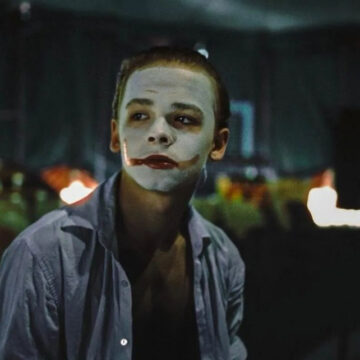
ALWAYS FAR AWAY
He has no chance to be his own self.
He’s born a performer.
IN_PRODUCTION_DOCUMENTARY_FILM
Vojta was born into a nomadic circus, moving from town-to-town each week. His innocent curiosity about the outside world clashes with the daily routine of tasks meant to prepare him to take over the family business.
For Vojta, the traveling circus is both a cherished tradition and a curse.

Born into a marginalized community of traveling circus performers can be tough for a teenager, who’s just beginning to form his own personal identity. Even young children are regarded as professional athletes, expected to hit their marks.
This is the world for Vojta and his brothers. Their nomadic life also affects their relationships. Since they’re in a different city every week, long-term relationships are almost impossible. Still they do their best — with the help of social media. Yet despite some notoriety online for his unorthodox life, Vojta is still isolated.
Tradition is a heavy load passed down through generations.

One of the few constants in Vojta’s life is his immediate family, making him deeply attached to them. To please his parents, Vojta initially follows their wishes and trains as they instruct. He is fortunate to have an athletic build, unlike his younger brother Nikolas, who is nicknamed “Piggy” due to his obesity. The children wear the masks their parents expect of them, burdened by a tradition passed down through generations. The overriding command is: Perform!
But as Vojta grows older, he begins to resist his parents’ expectations. He dreams of performing in Germany’s grand circuses, with crowds of thousands. The film explores Vojta’s complex journey of self-discovery as he matures into a young man and skilled artist, gaining new experiences and knowledge while enduring rigorous training that tests his physical limits. It reflects on how much one’s environment shapes their identity and the degree to which we can (or cannot) find happiness in fulfilling roles dictated by others.
Cirkus Lánik









Director’s noteRoman Ďuriš
I met Vojta and his family back in 2020 when Vojta was just 12 years old. At that time, his only friends were the circus workers hired by his father — homeless individuals, ex-prisoners, or even former mental institution patients. Vojta was already a performer, but he was terrified of anything outside the circus. In the traveling circus’s microcosm, children have no room to develop their own complex identities; they are born into their roles as performers without question.
However, Vojta’s path as an artist began to change with the onset of puberty, bringing with it a desire to form relationships outside the family. The biggest challenge for Vojta was the circus’s constant movement, as it changed towns every week. While he respects the tradition of the traveling circus, he also finds it a burden. The circus environment is a unique culture with its own customs and language, and many outsiders view them as uneducated or even dangerous. This may explain why Vojta began to use different masks during performances and moments of insecurity, helping him navigate this formative period with a boost of self-confidence.
I want to frame Vojta’s personal feelings within the broader historical changes that are reshaping his world and pushing the tradition of the traveling circus into the background. Factors like the pandemic, war, and regulations banning animals from performances have all contributed to this shift. Understanding this broader social context helps illuminate Vojta’s growing skepticism and anger.
Vojta

CREATIVE TEAM
in production / Slovakia, Czech Republic / 90 & 52 min.
director: Roman Ďuriš dop: Michaela Hošková producers: Michal Sikora, Richard Šimeček dramaturgy: Martin Šuster editor: Hana Dvořáčková music: Aid Kid